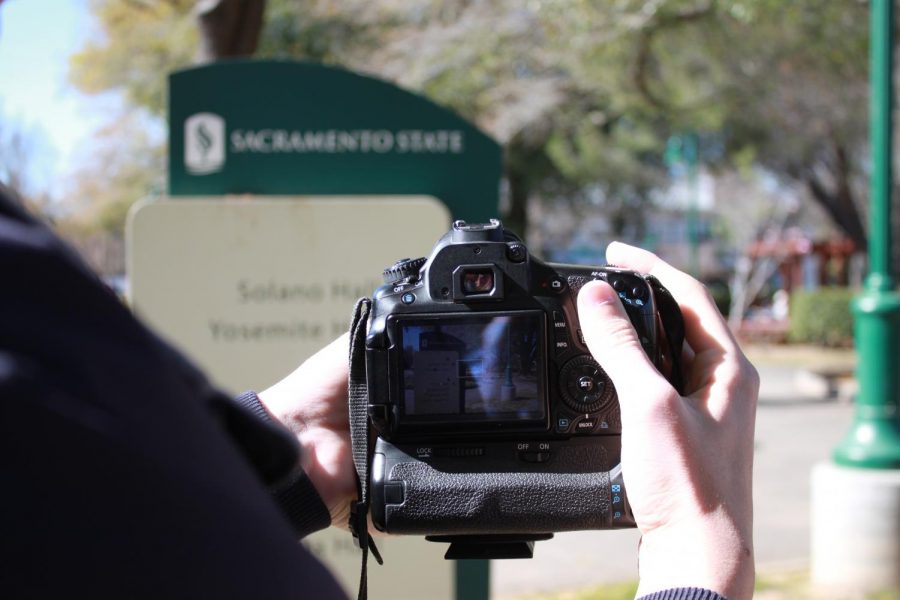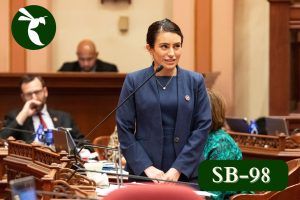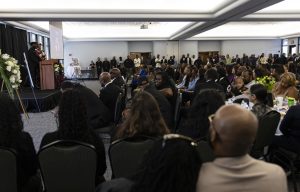Sac State media policy to be revised following concerns it is unconstitutional
Claire Morgan – The State Hornet
Sacramento State is revisiting its new campus media production policy, which technically could have applied even to students filming on their smartphones, after concerns were raised that the policy is unconstitutional.
February 20, 2018
Sacramento State is revising its newly announced visual and sound productions policy after concerns were raised that the policy — which would have placed restrictions on campus media production — is unconstitutional.
As it’s currently written, the policy, which was announced on Feb. 8 via SacSend, outlines rules that can apply to anyone who wishes to create visual and audio content on campus — including students filming on their smartphones, according to Student Press Law Center Senior Legal Fellow Frank LoMonte.
“The policy defines a production in such a way that it doesn’t have to be a commercial, for-profit production,” LoMonte said. “It could be something as informal as a person with a smartphone streaming on Facebook Live.”
But when asked for clarification about who the policy would affect, Sac State Public Information Officer Craig Koscho said that the policy will not apply to people taking videos on social media, students producing media for academic reasons, or journalists.
“Any student who’s just filming some stuff with his phone on a goof to place on Facebook later on, or something like that, that’s no problem,” Koscho said.
Regardless of the University’s assurances that the policy would not apply to students, LoMonte said that the rules presented concerns.
“The people who are giving you verbal assurances now will not always work at Sacramento State,” LoMonte said. “There will be new people, and as long as something exists in a rule, then there is potential for someone to be punished for violating it. The First Amendment does not provide that.”
The policy is broken into three categories: general rules, production for news and documentary purposes, and commercial visual and sound productions.
LoMonte said that several parts of the policy could be unconstitutional, including but not limited to the general vagueness of the policy, the lack of consequences listed, and several sections including the general rules and the section governing production for news and documentary purposes.
“If I’m a news producer and I can’t tell if these rules apply to me or not, that’s a problem,” said LoMonte. “That’s a vagueness issue. Vague policies that don’t give people notice if they’re covered or not are unconstitutional.”
Story continues below
[su_document url=”https://statehornet.com/wp-content/uploads/2018/02/adv-0151_procedures_rev.pdf” height=”1000″]Blank application form. [/su_document]
Koscho said that Sac State did not have a general visual and sound productions policy in place previously, and also did not have a policy to charge commercial entities to film on campus.
The policy took “four or five years” to finalize, according to Koscho, and was reviewed by members of the University Counsel Office, risk management, facilities management and space management, as well as Dean of the College of Arts and Letters Sheree Meyer.
“There was no official committee; we’d just have people come as needed whenever we were looking at a certain part,” Koscho said. “But over the period of time we had university counsel involved, we had myself, we had risk management, and over the last year we had Sheree Meyer, the dean of the College of Arts and Letters — because this really impacted her college — and she sat in on a number of meetings as well. So it kind of varies. Oh, and facilities was in there from time to time, and space management, just to cover all the different aspects.”
However, when The State Hornet requested to speak with University Counsel, who were said by Koscho to have consulted on the policy, they responded via email that they didn’t “know anything about the new Audio/Visual policy.”
The State Hornet was then referred to CSU General Counsel member Christopher Fowler. When asked if any portions of the policy were unconstitutional or unenforceable, Fowler simply responded, “no.” He did not respond to LoMonte’s critiques of the policy.
The State Hornet was then referred to former University Counsel lawyer Jill Peterson. Peterson had retired two months before the policy was finalized, and did not return a request for comment as of press time.
No consequences are listed for potential violators of the policy. The SacSend email encouraged members of the campus community to read a procedures policy, but the link leads to a “page not found” message on Sac State’s own webpage.
“That’s another weakness of the policy, is that it doesn’t say what happens if you violate it,” LoMonte said. “If I don’t know what the consequences are for disobedience, that’s a constitutional problem too — that’s a due process problem.”
Koscho said potential consequences for violating the policy would be determined based on the severity of the violation.
“That would have to be determined on a case-by-case basis after consulting with appropriate campus entities (Student Affairs, University Counsel, etc.) and obviously the consequences for doing something such as setting off pyrotechnics on campus will be much different than inadvertently getting a shot of a Sac State logo,” said Koscho via email.
The policy also suggests that school employees notify university advancement and get permission before they can be filmed under the production for news and documentary purposes category, which LoMonte said is problematic.
“The First Amendment does protect government employees even when they are talking about their work,” LoMonte said.
The same section of the policy suggests that the University can assess the level of professionalism of a news publication along with its intended use of the video, which LoMonte said can open Sac State to a constitutional violation based on viewpoint discrimination.
“I think the implication of that policy is that if university advancement doesn’t like how a journalist is going to present a story, then they can veto a story,” LoMonte said. “That’s an invitation for the University to participate in viewpoint-based discrimination, and viewpoint-based discrimination is never constitutional.”
When asked about this portion of the policy, Koscho said that it was meant to address recurring frequencies of news outlets coming onto campus and “asking our students personal questions.”
“One of the things we were concerned about, and fortunately it didn’t become an issue at all, was when the whole Dreamers thing blew up,” Koscho said. “We were very concerned about news people suddenly shoving their cameras in the faces of some of these Dreamers who don’t want to talk about it.”
Under the general rules portion, the policy suggests that a photographer or videographer get written University permission before taking a photo that includes Sac State symbols or logos.
“A requirement that a photographer, even an amateur cellphone photographer, get written University permission before taking a photo that includes University symbols or logos is just idiotic and could not possibly be enforced,” LoMonte said. “That’s not how the law works.
“It sounds like they’ve got some very specific and narrow concerns in mind that could be dealt with by way of a very narrow and specific policy and they don’t need all of this broad authority they’re claiming to have. They can stop people from making a movie for profit on your campus that has University logos on it. You can do that with a much narrower policy than that.”
Early Tuesday, Sac State announced that, in light of concerns raised, they will be “considering some revisions.”
“We have heard concerns from people about certain aspects of our policy regarding visual and sound productions on campus, and we will be considering some revisions,” Koscho said via email. “Until then the current policy will apply only to third parties.”
But as Sac State is a public campus, “third parties” still possess rights, LoMonte said.
“There is a component of photography and videography that is expressive, and that is protected by the First Amendment,” LoMonte said. “Once you open up the space and you say members of the community are welcome here, and are open to eat their lunch in the cafeteria, or go have a picnic on the lawn, then you can’t single out communicative activity, and say you can have a picnic here, but you can’t shoot a photo here.”
Update: This article has been updated to clarify that members of University Counsel are not lawyers and to indicate that The State Hornet was referred to Chris Fowler before Jill Peterson.

























































































































